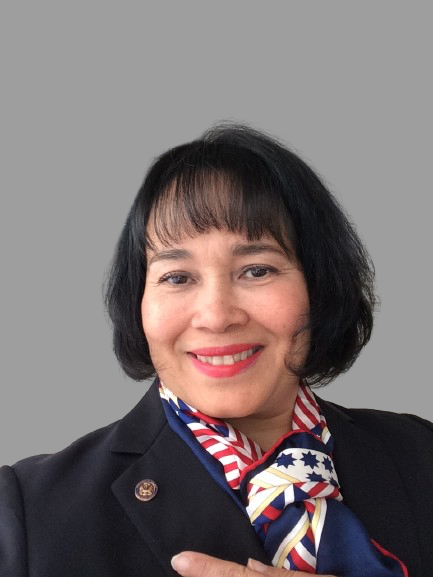One Medical Emergency Shouldn’t Equal a Lifetime of Debt: Margarita’s Story
First, Do No Harm
Margarita Emmanuelli, a veteran of the U.S. Navy, is one of the millions of people whose lives have been upended by medical debt. On Friday, Margarita shared her story at a Congressional Hispanic Caucus briefing, hosted by U.S. Representative Nydia Velázquez (D-NY) and policy advocates from Community Catalyst and UnidosUS, on the drivers and impacts of medical debt in Hispanic and Latino communities.
It began with an accident. Margarita was in the process of moving when she fell while stepping off a loading dock at a self-storage facility in Virginia. Both of her ankles were fractured.
“It was a devastating injury that turned my usual active and athletic lifestyle, upside down,” Margarita said.

Born and raised in Puerto Rico, Margarita has lived stateside for about 40 years. After her military service in the U.S. Navy, Margarita held civilian jobs at federal agencies, as a government contractor in Iraq during the war, and as a law enforcement officer in Virginia and Washington, D.C.
“In January of 2022, I had been downsized from a government contract, followed by a succession of events whereby I found myself also homeless,” Margarita said. “I had connected with the VA [Veteran’s Administration] and enrolled in a re-housing program and an employment certification program to help get me back on track.”
It was during that transition when Margarita fell. From that moment on, she knew her life would change.
In fact, the accident killed a job opportunity she had lined up. She was left with only rent assistance from the VA for a new apartment, which would expire in the summer. Margarita had no other income.
“When I was taken to the hospital, I explained what happened to me to staff who were amazed at the injury but also at the events preceding the accident,” said Margarita.
Margarita is one of over 100 million people in the United States – that’s 4 in 10 adults – with medical debt. For many people, one medical emergency – a single moment in time – can turn into a lifetime of debt, financial insecurity, and deeply burdensome psychological challenges.
“I was left in a state of desperation that I would be entering my sixth decade of life tied to this type of debt. I considered killing myself during this time as I pondered my situation and how I could overcome it,” said Margarita.
If hospitals and the broader health care system were more transparent and upfront about the costs of services and availability of financial support services, Margarita could have avoided accumulating medical debt.
Despite repeatedly advocating for herself during her stay at UVA Health and repeatedly disclosing her lack of access to adequate housing, the non-profit hospital did not offer her any financial assistance. Many non-profit hospital systems are driving individuals and families into crippling medical debt, despite receiving local, state, and federal tax breaks to ensure community investment.
“My injury also established clearly that I would not be able to work any time soon following treatment and limiting my ability to pay.”
“The health care industry should work towards rebuilding lives and not bankrupting them.”
As the medical bills continued to grow to more than $50,000, Margarita was forced to avoid seeking additional care and was forced to return to work early.
“I had to work on my recovery at home with no assistance, learned to walk on my own so I could walk at least with a cane, and got a job,” she said.
“I denied myself proper rehabilitation and therapy because I owe [my surgeon] money… I really would like to pay him, but I cannot afford it. Those bills have already gone into collections. I get calls daily. It never stops.”
In her remarks to the Congressional Hispanic Caucus, Margarita shared that the health care industry has a responsibility to the communities they serve.
“The health care industry should work towards rebuilding lives and not bankrupting them, Margarita said, adding,
“They should be made to follow a version of the Hippocratic oath [so] that first – and above all – it does not do harm.
To read, Margarita’s full remarks at the Congressional Hispanic Caucus briefing, click here.
Community Catalyst partners with people who have experienced medical debt to provide a platform for their concerns to be heard and so that they can shape policies that help to reduce and eliminate medical debt. Learn more about our recommendations and policies to curb the impact of medical debt here.